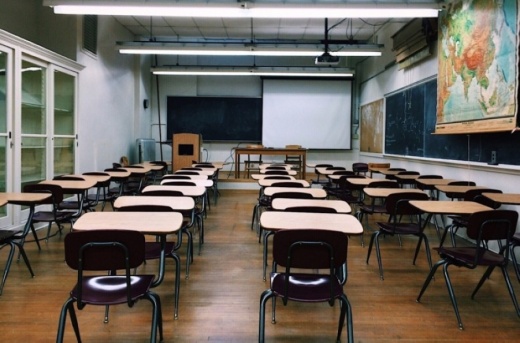Education-focused organizations are calling for the Texas Education Agency to reconsider its decision to resume the State of Texas Assessments of Academic Readiness, or STAAR tests, in the 2020-21 school year.
As previously reported by Community Impact Newspaper, the push back comes in response to a June 30 State Board of Education meeting, in which Texas Commissioner of Education Mike Morath announced STAAR testing requirements would be reinstated in the coming school year after being waived in the 2020 spring semester due to the coronavirus pandemic.
"We have all these things in place for a reason," Morath said. "There's very solid evidence [standardized tests] help children, especially students from low-income backgrounds. So we don't want to throw that up and just give up on the objectives to have students master the knowledge and skills they need to master this year."
Despite possible changes to the tests, such as longer testing windows of 30 days and different ways to calculate A-F ratings, organization leaders like Theresa Trevino, vice president of Texans Advocating for Meaningful Assessment, say schools should hold off another year.
TAMSA has sent an open letter to @GovAbbott to urge him to request a Federal waiver for 20-21 accountability requirements. Please share and contact the Governor today! The Governor’s contact info can be found here: https://t.co/9o1dzt5htIhttps://t.co/E9jGtdA1CW pic.twitter.com/fNPY1J9glZ
— TAMSA (@TAMSATX) July 3, 2020
“This pandemic really shined light on how disparate our districts were and are,” Trevino said. “We believe that these different holes ... are going to show up again, peppered throughout our state."
Morath pointed out during the June 30 presentation that the switch from in-person education to online remote learning had a profound negative effect on students from low-income backgrounds, also referred to as the “COVID[-19] slide.”
"On or about the time of COVID[-19] closures in the state of Texas and country-wide, you saw an immediate split in how students were making academic progress," he said. "Students from low-income ZIP codes were at a precipitous decline in academic progress that was immediate. They were making 50% less progress in mathematics than they normally do on a week-to-week basis."
The four- to five-hour long exam is given to all Texas public school students in grades 3-12 and tests for reading, writing, math, science and social studies. In addition to being a requirement for state funding of public schools, the tests can also determine if a student is deemed sufficiently prepared for moving on to the next grade level or receiving their high school diploma.
Although standardized tests may be instrumental in gauging a students’ academic performance, as schools are also navigating in-person and online learning methods, Trevino said keeping high stakes such as grade advancement, graduation requirements or state accountability rankings might add additional pressures to students, educators and schools.
“Let's see what happens when you remove the stakes,” Trevino said. “I would venture to guess [that] you're going to see a lot of learning, because [students] are going to have that many more weeks of curriculum that's presented to them and not test strategies.”
Elected officials such as State Rep. Gina Hinojosa, D—Austin, and other organizations such as the Texas State Teachers Association and the Texas branch of the American Federation of Teachers have likewise voiced their opposition to the decision.
“Standardized testing should be the last priority for students, educators and policymakers,” TSTA President Noel Candelaria said. “There are other, much more crucial priorities for the state, beginning with a plan for safe schools, a plan for returning students, teachers and employees safely to classrooms, but only after the pandemic has begun to subside, not while COVID[-19] cases are still increasing.”
Kelly Schafler contributed to this report.





